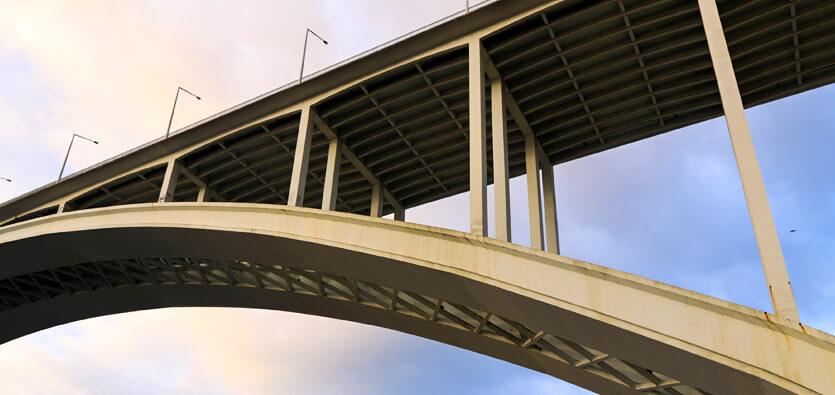
The construction industry has been using steel as a reinforcing medium in concrete members for over 100 years. However, steel fails to perform as expected especially where structures have been exposed to the harsh environment such as wastewater treatment facilities, bridges, chemical plants, and marine structures. Researchers have already tested many techniques to prevent the corrosion of steel reinforcement.
The use of epoxy coating and admixtures to improve impermeability are two examples of corrosion prevention techniques. The civil engineers have witnessed premature corrosion of epoxy-coated bars in bridges and other sensitive concrete members. The localized corrosion of the epoxy-coated bars makes the situation even worse as localized corrosion penetrates deeper into the bar rather than spreading on the surface.
Glass fiber reinforced polymer (GFRP) rebar has turned out to be a sustainable corrosion solution, a promising alternative to conventional reinforcing bars for concrete members. GFRP rebar is non-corrosive, lightweight, has high tensile strength, and offers high strength-to-weight-ratios. Taking into account the significant rehabilitation costs associated with the deterioration of existing bridges, which is mostly a result of steel reinforcement corrosion, the corrosion resistance property of GFRP rebar can offer significant value to RC members.
Related: The Application of GFRP Bars in Water Facilities: A Case Study
Following the promising characteristics of modern composites, the civil engineering community has accelerated the use of GFRP bars in many crucial applications: bridge decks, pavements, water treatment facilities, seawalls, and other systems where corrosion is the major structural challenge. Some of the proposed applications of FRP composites involve the replacement of conventional materials with composite materials. Apart from regular applications, advanced composites are ideal materials to be used in the rehabilitation activities.
It is hard for structural engineers to select a material by considering data based on short-term exposure duration. However, with the passage of time, the construction industry will have long-term performance data of GFRP materials embedded in concrete. The availability of reliable in-practice data will strengthen the position of advanced composites in the rebar market.
GFRP reinforcement provides many potential advantages to the constructors and owners. A number of studies have been conducted on this subject to investigate the applicability of advanced composites in constructing durable civil structures. Despite the widely reported advantages, the growth and acceptance of GFRP rebar has been largely hampered by the insufficient long-term performance data.
TUF-BAR is one of the companies that produce the highest-quality GFRP rebar in Canada and the United States. Our objective is to explore and materialize the true potential of composite materials and make them economically viable for the construction industry. Our products include GFRP rebar, form ties, rock bolts, and concrete anchors. Our fiberglass rebar and accessories are specified for use in bridges, dams, concrete slabs, barrier walls, tunneling and temporary reinforcement, roadways and other structures which should remain free of electromagnetic disturbances. Contact us to know more about our modern construction solution!
